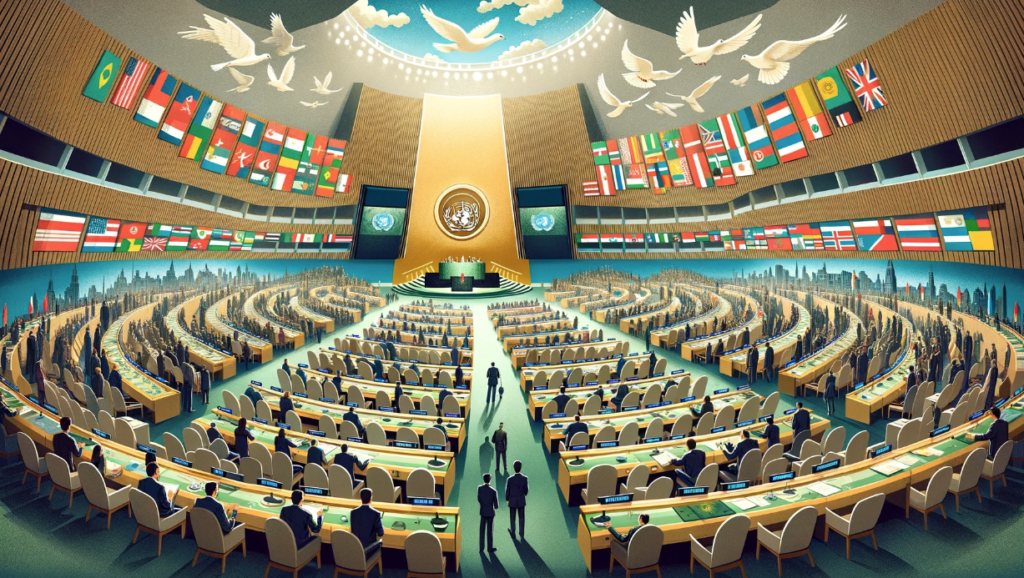Lesson 20. The Role of the United Nations (国連の役割)

▮ Explanatory Text:
The United Nations (UN) is an international organization founded in 1945, following the end of World War II, with the primary aim of maintaining international peace and security. Comprising 193 Member States, the UN works on a broad spectrum of issues, including promoting sustainable development, protecting human rights, providing humanitarian aid in the aftermath of conflicts and natural disasters, and upholding international law. The organization operates through various bodies, including the General Assembly, the Security Council, the Economic and Social Council, and the International Court of Justice, among others. This topic explores the structure, functions, and impact of the UN, highlighting its achievements and the challenges it faces in the contemporary global landscape.
▮ Common Phrases:
1. The UN plays a crucial role in…
2. Sustainable development goals aim to…
3. Peacekeeping missions are designed to…
4. Human rights advocacy involves…
5. Addressing climate change requires…
▮ Example Sentences:
1. The UN plays a crucial role in mediating international conflicts and facilitating peace processes.
2. Sustainable development goals aim to eradicate poverty, protect the environment, and ensure prosperity for all.
3. Peacekeeping missions are designed to help countries navigate the difficult path from conflict to peace.
4. Human rights advocacy involves protecting individuals’ freedoms and dignity against abuse and violence.
5. Addressing climate change requires global cooperation and commitment to reducing greenhouse gas emissions.
▮ Questions:
1. What are some of the most significant achievements of the United Nations?
This question encourages learners to explore and discuss key successes of the UN in various areas, such as peacekeeping, human rights, and development.
2. How does the UN address global challenges such as poverty, inequality, and climate change?
Participants examine the strategies and programs the UN employs to tackle pressing global issues.
3. What are the roles and responsibilities of the UN’s principal organs, and how do they contribute to its overall mission?
This prompts a detailed discussion on the functions of the UN’s main bodies and their impact on international cooperation and governance.
4. What challenges does the United Nations face in maintaining international peace and security today?
Learners discuss the obstacles to effective UN operations, including political, economic, and social factors.
5. How can the UN evolve to better address the needs of the global community in the 21st century?
This question invites speculation on reforms and innovations that could enhance the UN’s effectiveness in dealing with contemporary and future challenges.
▮ Discussion Instructions:
Select a UN initiative or program that interests you or that you believe is critical for global development. Discuss its objectives, implementation, and outcomes, considering the challenges it faces and its impact on the international community. Reflect on how this initiative contributes to the UN’s broader goals and what lessons can be learned from its execution.







